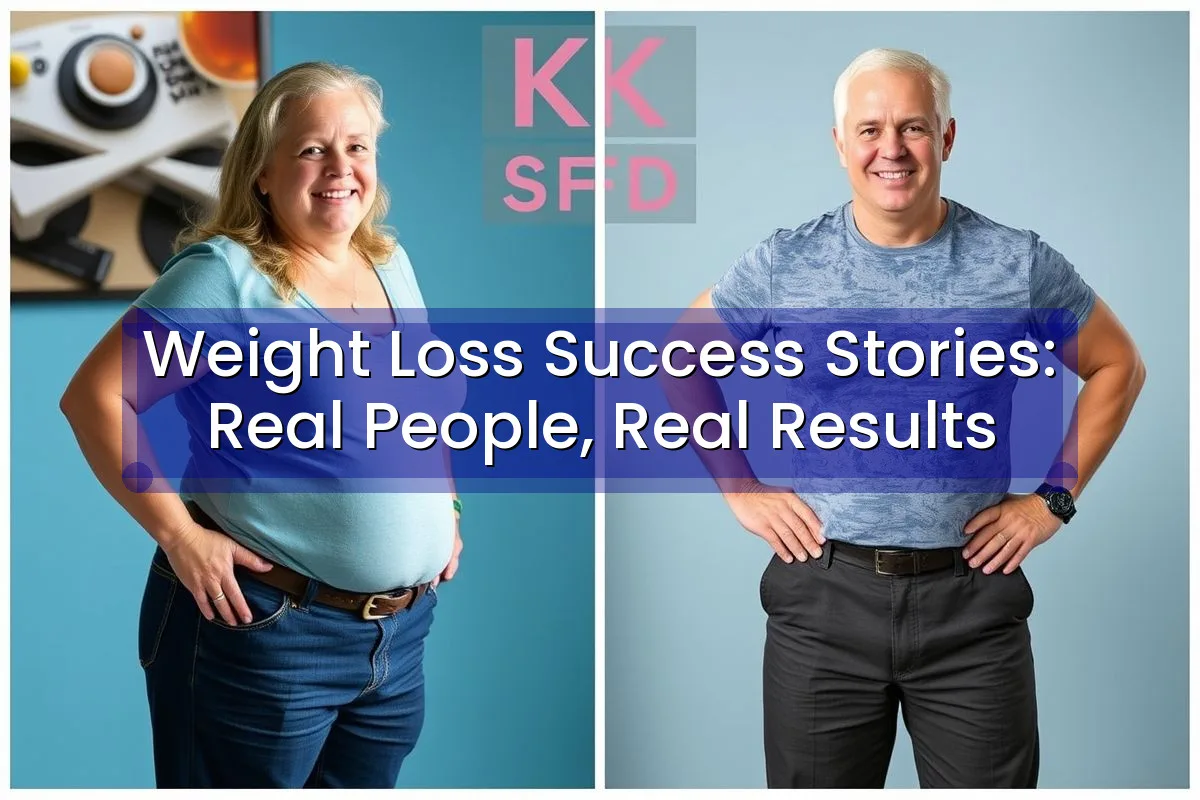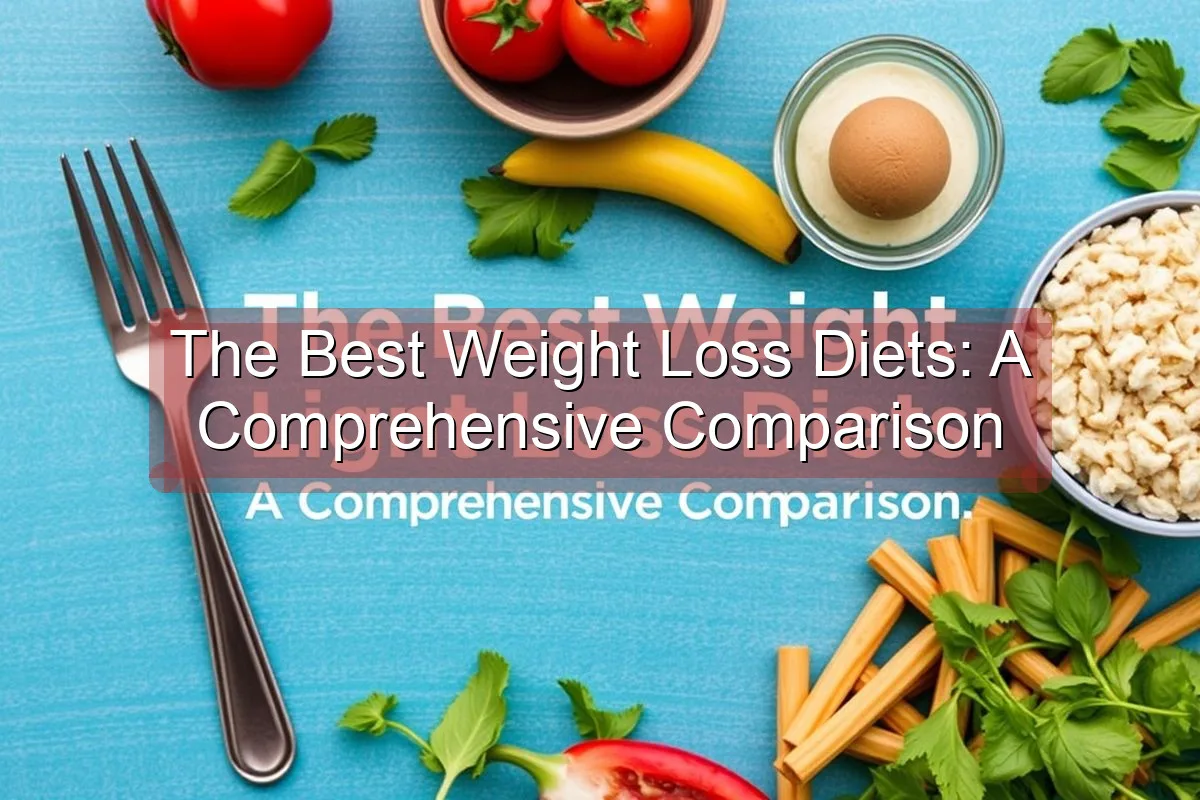
Kilo Verme Biliminin Kilidini Açmak: Kapsamlı Bir Kılavuz
Kilo kaybı, birçok kişinin başladığı, genellikle yanlış bilgi ve sürdürülemez uygulamalarla dolu bir yolculuktur. Bu kapsamlı kılavuz, gürültüyü kesmeyi ve sağlıklı bir kiloya ulaşmak ve sürdürmek için bilim destekli bir yaklaşım sağlamayı amaçlamaktadır. Enerji dengesi, metabolizma ve hormonal düzenlemenin altında yatan ilkeleri anlamak, kişiselleştirilmiş ve etkili bir kilo verme stratejisi geliştirmek için çok önemlidir. Diyet ayarlamaları, egzersiz rejimleri ve yaşam tarzı değişiklikleri dahil olmak üzere başarılı bir kilo verme planının temel bileşenlerini inceleyeceğiz. Bu, hızlı düzeltmeler veya moda diyetlerle ilgili değil; Bu, uzun vadeli sağlık ve esenlik için sürdürülebilir bir temel oluşturmakla ilgilidir. Kilo vermenin arkasındaki bilimi anlayarak, bilinçli kararlar vermek ve hedeflerinize ulaşmak için kendinizi güçlendirebilirsiniz.
Birçok insan kilo vermekle mücadele eder çünkü genel tavsiyelere veya bireysel ihtiyaçlarına göre uyarlanmamış kısıtlayıcı diyetlere güvenirler. Bu kılavuz, vücudunuzun benzersiz gereksinimlerini anlamanın ve yaşam tarzınız ve tercihlerinizle uyumlu bir plan oluşturmanın önemini vurgulamaktadır. Kalori sayma, makro besin dengeleme ve dikkatli yeme gibi farklı diyet yaklaşımlarını keşfedeceğiz ve sizin için en iyi seçeneği nasıl seçeceğinizi tartışacağız. Ayrıca, hem kardiyovasküler antrenmanın hem de kuvvet antrenmanının faydaları da dahil olmak üzere egzersizin kilo vermedeki rolünü inceleyeceğiz. Bu kılavuz, kilo vermenin yalnızca diyet ve egzersizle ilgili olmadığını, aynı zamanda stresi yönetmek, yeterince uyumak ve olumlu bir zihniyet geliştirmekle ilgili olduğunu kabul eden bütünsel bir yaklaşım sunar.
Kilo Kaybının Temellerini Anlamak
Enerji Dengesi: Kilo Kaybının Temel Taşı
Kilo vermenin temel ilkesi, kilo vermek için tükettiğinizden daha fazla kalori harcamanız gerektiğini belirten enerji dengesidir. Genellikle “alınan kalori, alınan kalori” olarak adlandırılan bu kavram, birçok kilo verme stratejisinin temelidir. Vücudunuzun ihtiyaç duyduğundan daha fazla kalori tükettiğinizde, fazlası yağ olarak depolanır. Tersine, vücudunuzun ihtiyaç duyduğundan daha az kalori tükettiğinizde, vücudunuz enerji için yağ rezervlerini kullanır. Vücudunuzun dinlenirken yaktığı kalori miktarı olan Bazal Metabolizma Hızınızı (BMR) anlamak, günlük kalori ihtiyaçlarınızı hesaplamak için çok önemlidir. BMR’nizi belirlemek ve sağlığınızdan ödün vermeden kilo kaybını destekleyen bir kalori açığı oluşturmak için çevrimiçi hesap makinelerini kullanabilir veya kayıtlı bir diyetisyene danışabilirsiniz.
Kalori açığı yaratmak, gıda alımınızı büyük ölçüde azaltmak anlamına gelmez. Bunun yerine, yediğiniz yiyecekler hakkında bilinçli seçimler yapmak ve fiziksel aktivite seviyenizi artırmakla ilgilidir. Meyveler, sebzeler, yağsız proteinler ve kepekli tahıllar gibi besin açısından yoğun gıdalara odaklanmak, daha az kalori tüketirken tok ve tok hissetmenize yardımcı olabilir. Porsiyon boyutlarına dikkat etmek ve genellikle kalori, şeker ve sağlıksız yağlar açısından yüksek olan işlenmiş gıdalardan kaçınmak da önemlidir. Diyetinizde ve egzersiz alışkanlıklarınızda küçük, sürdürülebilir değişiklikler yaparak, kademeli ve tutarlı kilo kaybına yol açan bir kalori açığı yaratabilirsiniz.
While energy balance is a crucial factor in weight loss, it’s important to remember that it’s not the only factor. Hormones, genetics, and lifestyle factors also play a significant role in regulating weight. Therefore, a holistic approach that addresses all of these aspects is essential for achieving long-term success. For example, stress can lead to increased cortisol levels, which can promote fat storage and hinder weight loss efforts. Similarly, lack of sleep can disrupt hormone levels and increase cravings for unhealthy foods. By addressing these underlying factors, you can optimize your body’s ability to burn fat and maintain a healthy weight.
The Role of Macronutrients: Protein, Carbs, and Fats
Macronutrients – protein, carbohydrates, and fats – are the building blocks of our diet and play distinct roles in weight loss. Protein is essential for building and repairing tissues, and it also helps to increase satiety, meaning it keeps you feeling fuller for longer. This can be particularly beneficial for weight loss, as it can help you to consume fewer calories throughout the day. Good sources of protein include lean meats, poultry, fish, eggs, beans, and lentils. Aim to include a source of protein in every meal to support muscle growth and satiety.
Carbohydrates are the body’s primary source of energy. However, not all carbohydrates are created equal. Simple carbohydrates, such as refined sugars and processed grains, are quickly digested and can lead to blood sugar spikes and crashes. Complex carbohydrates, such as whole grains, fruits, and vegetables, are digested more slowly and provide a sustained release of energy. Choosing complex carbohydrates over simple carbohydrates can help to stabilize blood sugar levels, reduce cravings, and promote weight loss. It’s important to consume carbohydrates in moderation and to choose nutrient-rich sources.
Fats are often demonized in the context of weight loss, but they are actually essential for good health. Healthy fats, such as those found in avocados, nuts, seeds, and olive oil, provide essential fatty acids, support hormone production, and help to absorb fat-soluble vitamins. However, it’s important to choose healthy fats over unhealthy fats, such as saturated and trans fats, which can increase the risk of heart disease. Consuming fats in moderation can also help to increase satiety and reduce cravings. Aim to include healthy fats in your diet, but be mindful of portion sizes, as fats are calorie-dense.
Creating a Sustainable Weight Loss Plan
Dietary Strategies for Weight Loss
Numerous dietary strategies can be effective for weight loss, and the best approach will vary depending on individual preferences and needs. Calorie counting, macronutrient balancing, intermittent fasting, and mindful eating are just a few examples. Calorie counting involves tracking your daily calorie intake and ensuring that you are consuming fewer calories than you are burning. Macronutrient balancing involves tracking your intake of protein, carbohydrates, and fats and adjusting the ratios to support weight loss. Intermittent fasting involves cycling between periods of eating and fasting. Mindful eating involves paying attention to your hunger and fullness cues and eating with intention.
Regardless of the dietary strategy you choose, it’s important to focus on whole, unprocessed foods. These foods are typically lower in calories and higher in nutrients than processed foods. They also tend to be more filling, which can help you to consume fewer calories overall. Focus on filling your plate with fruits, vegetables, lean proteins, and whole grains. Limit your intake of processed foods, sugary drinks, and unhealthy fats. It’s also important to stay hydrated by drinking plenty of water throughout the day. Water can help to increase satiety and boost metabolism.
Sustainability is key when it comes to dietary changes for weight loss. Avoid restrictive diets that are difficult to maintain in the long term. Instead, focus on making small, gradual changes to your eating habits that you can stick with for life. It’s also important to be patient and consistent. Weight loss takes time, and there will be setbacks along the way. Don’t get discouraged if you don’t see results immediately. Just keep making healthy choices and trust that you will eventually reach your goals.
Exercise and Physical Activity
Exercise is an essential component of a comprehensive weight loss plan. It helps to burn calories, boost metabolism, and build muscle mass. Both cardiovascular exercise and strength training are beneficial for weight loss. Cardiovascular exercise, such as running, swimming, and cycling, burns calories and improves cardiovascular health. Strength training, such as weightlifting, builds muscle mass, which helps to increase metabolism and burn more calories at rest. Aim for at least 150 minutes of moderate-intensity cardiovascular exercise or 75 minutes of vigorous-intensity cardiovascular exercise per week, along with two or more days of strength training.
In addition to structured exercise, it’s important to incorporate physical activity into your daily routine. Take the stairs instead of the elevator, walk or bike to work, and stand up and move around every hour. Even small changes can make a big difference over time. Find activities that you enjoy and that fit into your lifestyle. This will make it more likely that you will stick with your exercise routine in the long term. Consider joining a gym, taking a fitness class, or working with a personal trainer to stay motivated and accountable.
Remember to listen to your body and avoid overtraining. Rest and recovery are just as important as exercise. Allow your body time to recover between workouts to prevent injuries and burnout. If you are new to exercise, start slowly and gradually increase the intensity and duration of your workouts. Consult with a healthcare professional before starting a new exercise program, especially if you have any underlying health conditions.
Lifestyle Modifications for Long-Term Success
Weight loss is not just about diet and exercise; it’s also about making sustainable lifestyle changes. Managing stress, getting enough sleep, and cultivating a positive mindset are all essential for long-term success. Stress can lead to increased cortisol levels, which can promote fat storage and hinder weight loss efforts. Find healthy ways to manage stress, such as yoga, meditation, or spending time in nature. Aim for at least 7-8 hours of sleep per night. Lack of sleep can disrupt hormone levels and increase cravings for unhealthy foods. Cultivate a positive mindset and focus on your progress, not your setbacks. Celebrate your successes and learn from your mistakes.
Building a support system can also be helpful for weight loss. Surround yourself with people who support your goals and encourage you to stay on track. Consider joining a weight loss group or working with a therapist or counselor. It’s also important to be patient and persistent. Weight loss takes time, and there will be challenges along the way. Don’t give up on yourself. Keep making healthy choices and trust that you will eventually reach your goals.
Ultimately, successful weight loss is about finding a sustainable balance between diet, exercise, and lifestyle. It’s about making choices that support your health and well-being, not just for the short term, but for the long term. By understanding the science behind weight loss and making gradual, sustainable changes, you can achieve your goals and live a healthier, happier life.
| Component | Description | Importance |
|---|---|---|
| Energy Balance | Consuming fewer calories than you burn. | Fundamental for weight loss. |
| Macronutrients | Protein, carbohydrates, and fats. | Essential for building and repairing tissues, providing energy, and supporting hormone production. |
| Dietary Strategies | Calorie counting, macronutrient balancing, intermittent fasting, mindful eating. | Provides a framework for making healthy food choices. |
| Exercise | Cardiovascular exercise and strength training. | Burns calories, boosts metabolism, and builds muscle mass. |
| Lifestyle Modifications | Managing stress, getting enough sleep, cultivating a positive mindset. | Supports long-term success and overall well-being. |
- Focus on whole, unprocessed foods.
- Stay hydrated by drinking plenty of water.
- Get enough sleep.
- Manage stress effectively.
- Build a support system.
Frequently Asked Questions About Weight Loss
Conclusion
Embarking on a weight loss journey requires a multifaceted approach grounded in scientific principles and tailored to individual needs. This comprehensive guide has illuminated the key elements of effective weight loss, from understanding energy balance and macronutrient roles to implementing sustainable dietary and exercise strategies. It’s crucial to remember that there is no one-size-fits-all solution, and the most successful approach involves a personalized plan that integrates healthy eating habits, regular physical activity, and mindful lifestyle choices.
The path to achieving and maintaining a healthy weight is not always linear, and setbacks are inevitable. However, by staying informed, consistent, and patient, you can overcome challenges and reach your goals. Remember to focus on progress, not perfection, and celebrate your achievements along the way. Prioritize your overall well-being, and view weight loss as a journey towards a healthier and happier you. With dedication and the right knowledge, you can unlock the science of weight loss and transform your life.
“`














Leave a Reply